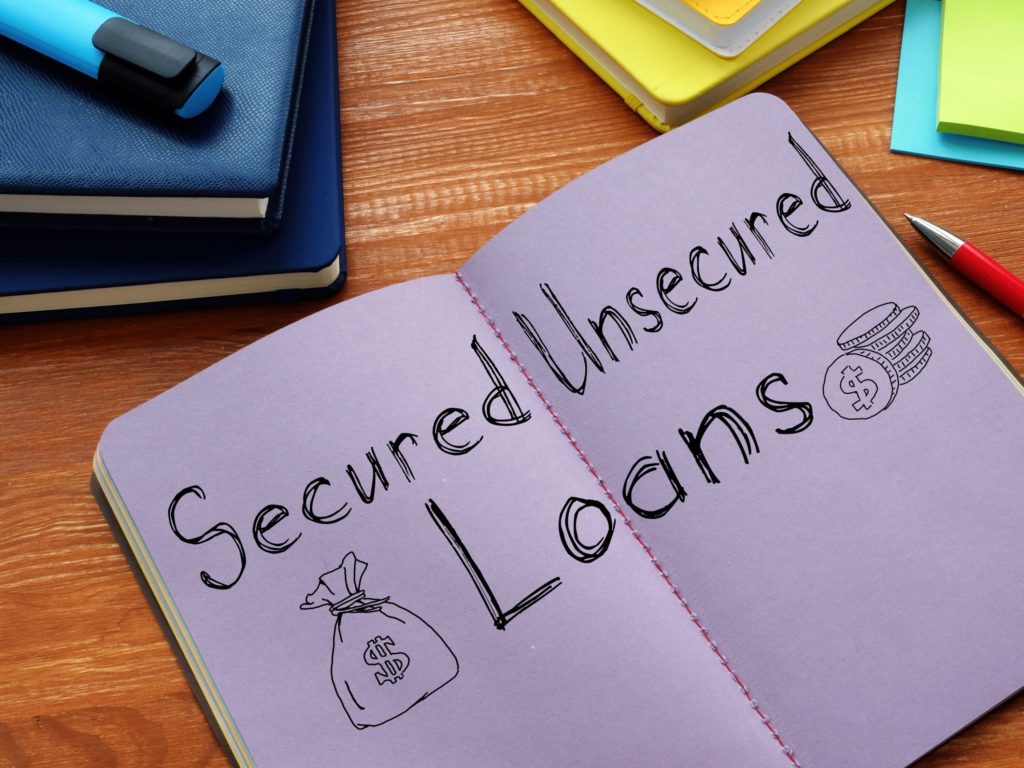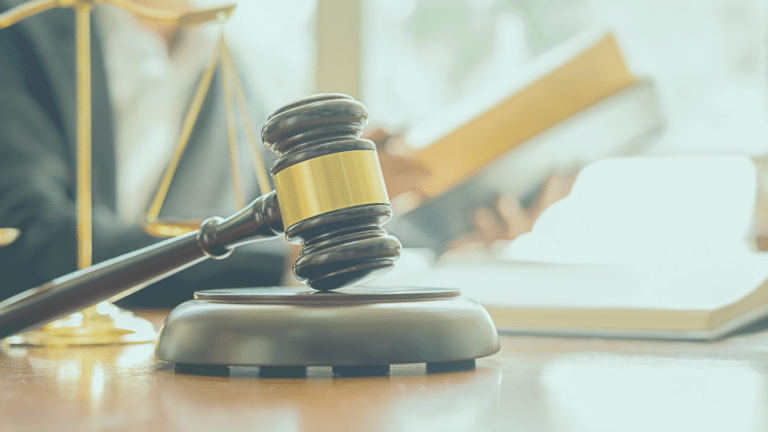Business financing: is a small business loan secured or unsecured?
When it comes to business financing, you may have found yourself asking, “is a small business loan secured or unsecured?” While secured and unsecured loans are dependent on the lender, each offers a variety of benefits. Learn more about secured vs unsecured loans in this article.
As a small business owner, deciding on the right funding for your business can come down to loan terms, lender requirements, or loan amounts. But in searching for the right fit, you may have found yourself wondering, is a small business loan secured or unsecured? The answer is: it depends. Although there are many types of small business loans that can be categorized as either secured or unsecured, the main differentiating factor is collateral.
Secured business loans are loans that are backed by an asset which acts as collateral for the loan. It’s important to remember that using collateral to secure a loan creates a risk of losing that asset. If a default happens, the lender can seize the asset and sell it to make up their losses. An unsecured loan is based on creditworthiness alone and leaves a lender unprotected if the loan is not repaid. Choosing a loan for your business comes down to business specific needs and whether you meet the qualifications of the lender. This is why understanding the differences will allow you to find the type of funding that is best for your business.
Secured vs unsecured small business loans
When looking into the various small business loan options available to you and wondering, is a small business loan secured or unsecured? It’s important to take your financial situation into account before deciding to go with a secured or unsecured loan. The most important difference between secured and unsecured small business loans is that secured loans are asset-backed – meaning, the loan is backed by company assets used in the form of collateral. Putting company assets up for collateral lessens the risk on the lending institution which makes it easier to access lower rates, flexible terms, and higher loan amounts. Since the collateral needs to be substantial enough to cover the loan amount, you should obtain an accurate appraisal of the asset’s value to ensure you qualify for a secured loan.
If you don’t want to jeopardize your assets or have the collateral needed for a secured loan, an unsecured loan may be a better fit. Since unsecured loans are not asset-backed, you’ll generally have to pay higher rates or fees, experience a shorter repayment period, and receive a smaller loan amount than a secured loan. Instead of using collateral to determine application approval, the lender will consider factors such as your credit history and business plan to determine whether the business is creditworthy.
Although the biggest difference between secured vs unsecured small business loans is collateral, the other ways they differ are:
- Application and approval process: Depending on what type of collateral is being pledged as security for the loan, Lenders may need time to evaluate the value of the assets offered up for collateral when it comes to a secured loan application which can sometimes take several weeks. However, that is not always the case. An unsecured loan, however, can take as little as a few days.
- Lender requirements: Some lenders require the business owner to sign a personal guarantee document for secured or unsecured loans. This document shows acceptance for personal responsibility for repaying the debt in the event the business defaults on the loan.
- Rates or Fees: Historically, rates or fees can be lower for secured loans mainly because there’s much less risk for the lender. If the business defaults on the loan, the lender can sell the business assets to regain the money that was lost. For unsecured loans, the rates may be much higher to compensate for the lack of collateral.
- Loan amounts: With less lender risk with secured loans, lenders may be more willing to allow your business to borrow a larger sum of money (i.e. at least $250,000) as long as you have the collateral to back it. With unsecured loans, there’s a higher lender risk which usually translates to lower maximum loan amounts.
- Repayment period: Longer repayment terms may coincide with secured loan amounts which will keep you in debt longer; however, some secured loans have a shorter repayment term. However, for unsecured loans, the time you have to repay your loan will generally be shorter than a repayment term available with a secured loan.
Pros and cons of secured loans vs unsecured loans
In looking at secured and unsecured small business loans, it’s important to weigh in the pros and cons to determine which path is best for your business:
Secured loans: If you are looking to borrow a large amount for a renovation or business acquisition, a secured loan may be a good option to consider.
- Pros: The collateral used to secure a personal loan offers an extra layer of protection for the lender. That means lenders are more willing to offer secured loans to borrowers with lower credit scores. Being able to provide substantial collateral also provides lower rates or fees, favorable terms, and higher borrowing amounts.
- Cons: Secured loans put less risk on the lender and more risk on the borrower. The biggest downside of taking out a secured loan is the risk of having the lender sell potentially possess and sell the business collateral in the event of default. Because the lender needs to ensure the collateral the business offers is sufficient, traditional lenders require more paperwork and longer wait times before you have access to the funds you apply for. Alternative lenders tend to have a more simplified application process.
Unsecured loans: For short-term needs such as bridging seasonal cash flow gaps or purchasing new equipment, unsecured loans often fit the bill. However, the amount you borrow with an unsecured loan can be limited by credit score and the business’s monthly income.
- Pros: The application and approval process for an unsecured loan is much faster due to collateral not being involved. The application potentially requires little paperwork and a quicker approval process.
- Cons: Although unsecured loans do not require collateral, there is more risk placed on the lender, not the borrower. This comes at a cost of higher rates or fees, shorter terms, and the potential need for a signed personal guarantee.
Choosing between a secured loan or an unsecured loan
Ultimately, choosing between a secured loan or an unsecured loan depends on your circumstances and the lender you decide to work with. If you need money right away, an unsecured loan may be your only option—but qualifying for the loan is dependent on the amount of financing needed and your credit score. However, there are some lenders that have a fast application process even though the loans are secured. It just depends on the lender. Secured loans are typically cheaper in terms of rates, but the business can also run the risk of losing business collateral in the event the business were to default on the loan. To help make your decision, it’s important to know how you intend to use the small business loan. Once you’ve figured out what kind of loan suits your business purpose, you are in a better position to make your decision.
Loans available as both secured and unsecured loan types depending on the lender:
- SBA loans: The Small Business Administration is a government-funded entity that provides government-backed loans through partners who can distribute funds when capital is needed. Most SBA loans are repaid with monthly payments of principal and interest and can be used for establishing a new business or assisting an acquisition.
- Line of credit: A line of credit is a flexible funding option that can be accessed by small business owners as a kind of revolving capital that works similarly to a credit card. Your business will be approved for a set amount of credit which then allows you to draw on that amount when needed, only paying interest or a fee on the balance that you owe.
- Term loan: A term loan is a flexible lending option that provides your company with access to capital on a need-to basis. Once your company has been approved for a set amount, it will be deposited into your business bank account for immediate use. Short term loans provide you with the working capital you need, and the ability to pay it off quickly. Long term loans allow you to borrow more, while paying back the loan over a longer term.
- Business credit card: A business credit card can provide transactional ease when purchasing, invoicing, or providing funds for your business. A business credit card operates in a similar way as a traditional credit card – the difference tends to be in the benefits of purchases that business owners typically make for their company.
Secured and unsecured small business loans – what’s best for your business?
In deciding between a secured or an unsecured small business loan, the best option for your business is based on your current financial needs and what lender your business wants to work with. If your business meets the requirements for a secured loan and you are willing to put business assets up for collateral, a secured business loan may be the best bet. But if you’re looking to fill a short-term revenue gap to cover an unexpected expense, an unsecured loan may be the better option instead.
If you have any questions such as, is a small business loan secured or unsecured? Or would like to speak with a business advisor about alternative lending, please call one of our small business experts at Rapid Finance today: (877)-252-0827.


